10 Best Herbal Tinctures For Anxiety
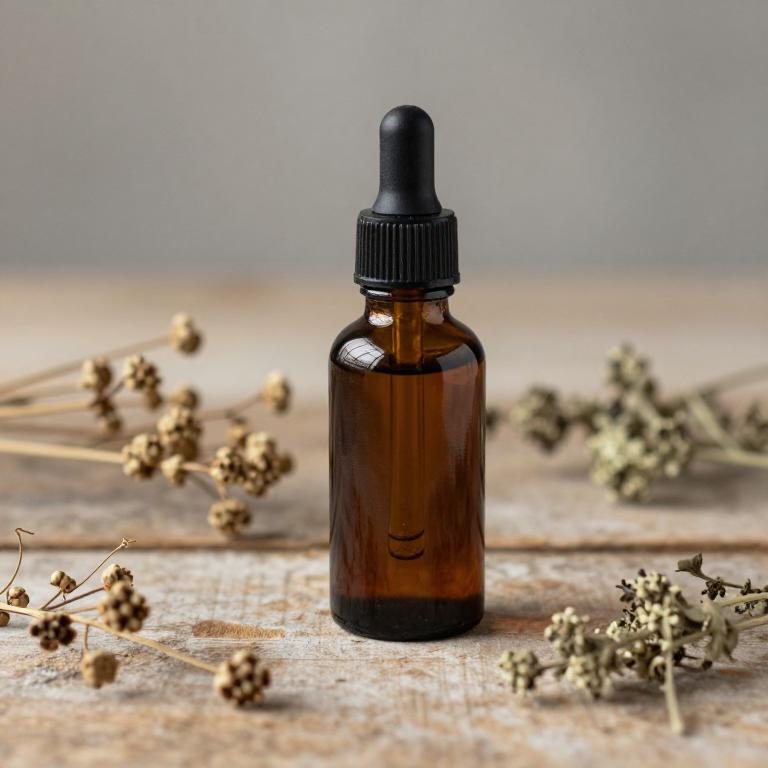
Herbal tinctures for anxiety are concentrated liquid extracts made from plants known for their calming properties, such as valerian root, chamomile, and lemon balm.
These tinctures are typically prepared by soaking plant material in alcohol or glycerin to extract the active compounds, which can then be taken orally in small doses. They are often used as a natural alternative to pharmaceutical anxiety medications due to their perceived gentler effects and fewer side effects. Many people find relief from symptoms like restlessness and insomnia through regular use of these tinctures.
However, it is important to consult a healthcare provider before starting any herbal treatment to ensure safety and appropriateness for individual health conditions.
Table of Contents
- 1. Valerian (Valeriana officinalis)
- 2. Maypop (Passiflora incarnata)
- 3. Licorice (Glycyrrhiza glabra)
- 4. St. john's wort (Hypericum perforatum)
- 5. Heartworts (Leonurus cardiaca)
- 6. Yarrow (Achillea millefolium)
- 7. Echinacea (Echinacea purpurea)
- 8. Lemon balm (Melissa officinalis)
- 9. Kava (Piper methysticum)
- 10. Oat (Avena sativa)
1. Valerian (Valeriana officinalis)

Valeriana officinalis, commonly known as valerian, is a traditional herbal remedy that has been used for centuries to alleviate anxiety and promote relaxation.
Valerian root tinctures are concentrated liquid extracts made by soaking the dried root in alcohol, which helps preserve its active compounds. These tinctures are believed to work by increasing the levels of GABA, a neurotransmitter that inhibits nerve activity in the brain, thereby reducing anxiety symptoms. They are often used as a natural alternative to prescription medications for mild to moderate anxiety.
While generally considered safe, valerian tinctures may cause side effects such as drowsiness or digestive discomfort in some individuals.
2. Maypop (Passiflora incarnata)
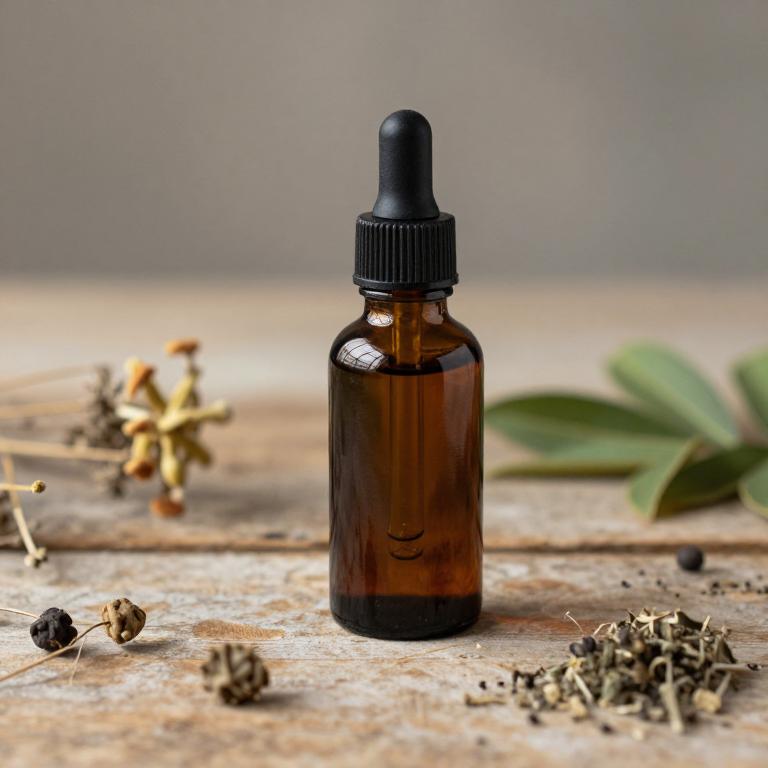
Passiflora incarnata, commonly known as passionflower, is a herbal remedy traditionally used to alleviate symptoms of anxiety and promote relaxation.
Its tincture form, extracted through alcohol-based processes, is widely utilized for its calming properties that support the nervous system. Studies suggest that passionflower may increase levels of GABA, a neurotransmitter that reduces neuronal excitability and contributes to a sense of calm. This herbal tincture is often preferred for its natural composition and minimal side effects compared to pharmaceutical anxiety medications.
When used consistently, passiflora incarnata tinctures can offer a gentle, long-term approach to managing stress and anxiety.
3. Licorice (Glycyrrhiza glabra)

Glycyrrhiza glabra, commonly known as licorice root, has been traditionally used in herbal medicine for its potential calming effects on the nervous system.
Glycyrrhiza glabra herbal tinctures are often prepared by soaking the dried root in alcohol to extract its active compounds, such as glycyrrhizin and flavonoids. These tinctures are believed to support stress reduction and may help alleviate symptoms of anxiety by modulating the body's stress response. However, due to the presence of glycyrrhizin, long-term use can lead to side effects like hypertension and sodium retention, so it is important to consult a healthcare provider before use.
Despite these considerations, many individuals find glycyrrhiza glabra tinctures to be a natural and complementary approach to managing anxiety.
4. St. john's wort (Hypericum perforatum)

Hypericum perforatum, commonly known as St. John's Wort, is a traditional herbal remedy that has been used for centuries to support mental well-being.
Its tincture form is a concentrated extract of the plant's active compounds, including hyperforin and hypericin, which are believed to influence mood-regulating neurotransmitters in the brain. Hypericum perforatum tinctures are often used to help manage symptoms of anxiety and mild to moderate depression due to their adaptogenic and calming properties. When taken as directed, these tinctures may offer a natural alternative for individuals seeking relief from stress and anxiety without the side effects of pharmaceutical medications.
However, it is important to consult with a healthcare provider before use, as St. John's Wort can interact with certain medications and may not be suitable for everyone.
5. Heartworts (Leonurus cardiaca)
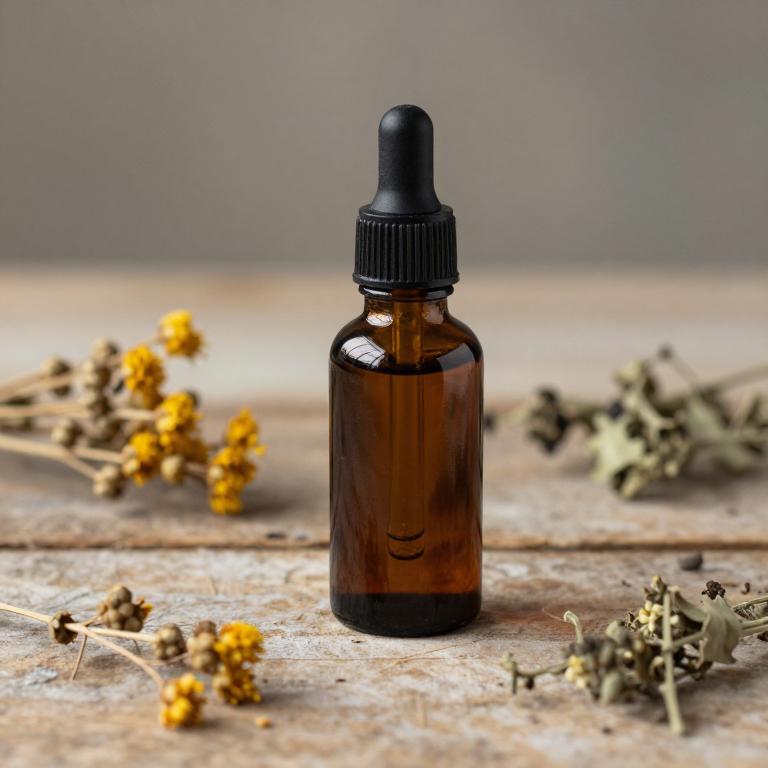
Leonurus cardiaca, commonly known as heartwarming or redweed, is a traditional herbal remedy that has been used for centuries to support emotional well-being.
Its tinctures are often prepared using alcohol to extract the plant's active compounds, which are believed to have calming and anxiolytic properties. The herb is particularly noted for its ability to help manage symptoms of anxiety, stress, and nervous exhaustion by promoting relaxation and balancing the nervous system. Modern herbalists and natural health practitioners frequently recommend Leonurus cardiaca tinctures as a complementary therapy for those seeking a gentler alternative to pharmaceutical treatments.
However, it is important to consult with a qualified herbalist or healthcare provider before use, especially for individuals with pre-existing medical conditions or those taking other medications.
6. Yarrow (Achillea millefolium)

Achillea millefolium, commonly known as yarrow, has been traditionally used for its calming properties and is often incorporated into herbal tinctures for anxiety relief.
These tinctures are typically made by soaking the dried leaves and flowers of the plant in alcohol, allowing the active compounds to be extracted for medicinal use. Yarrow contains compounds such as azulene and flavonoids, which are believed to have mild sedative and anti-inflammatory effects that may help reduce anxiety symptoms. Herbal tinctures made from Achillea millefolium are often used as a complementary therapy alongside other anxiety management strategies.
However, it is important to consult with a healthcare professional before using yarrow tinctures, especially for individuals with existing medical conditions or those taking other medications.
7. Echinacea (Echinacea purpurea)

Echinacea purpurea, commonly known as purple coneflower, is traditionally used in herbal medicine for its immune-boosting properties, but recent research suggests it may also have potential benefits for anxiety.
Herbal tinctures made from Echinacea purpurea are typically prepared by soaking the dried plant material in alcohol, allowing the active compounds to be extracted. These tinctures may contain compounds like alkamides, caffeic acid derivatives, and polysaccharides, which are believed to influence the nervous system and reduce stress responses. While some studies indicate that Echinacea may help alleviate mild anxiety symptoms, more rigorous clinical trials are needed to confirm its efficacy.
As with any herbal remedy, it is important to consult with a healthcare provider before using Echinacea purpurea tinctures, especially for individuals with existing health conditions or those taking other medications.
8. Lemon balm (Melissa officinalis)
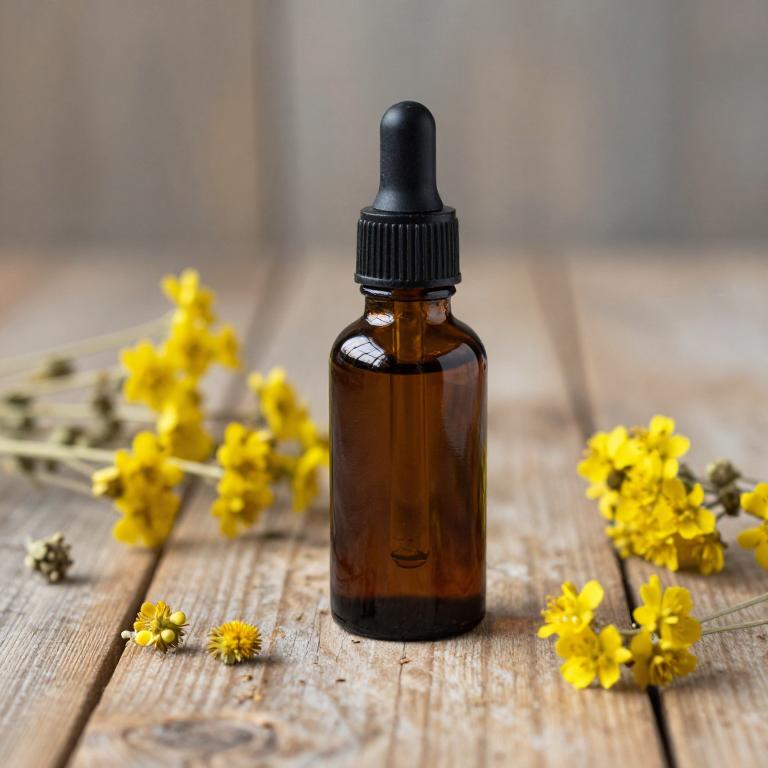
Melissa officinalis, commonly known as lemon balm, is a popular herb used in the form of tinctures to help alleviate symptoms of anxiety.
These tinctures are typically made by steeping the fresh or dried leaves of the plant in alcohol, allowing the active compounds to be extracted for medicinal use. Lemon balm is valued for its calming properties, which may help reduce feelings of stress and promote relaxation without causing drowsiness. Research suggests that the herb may interact with the central nervous system to modulate neurotransmitter activity, potentially enhancing mood and reducing anxiety levels.
As a natural remedy, Melissa officinalis tinctures are often used as a complementary therapy alongside other anxiety management strategies.
9. Kava (Piper methysticum)
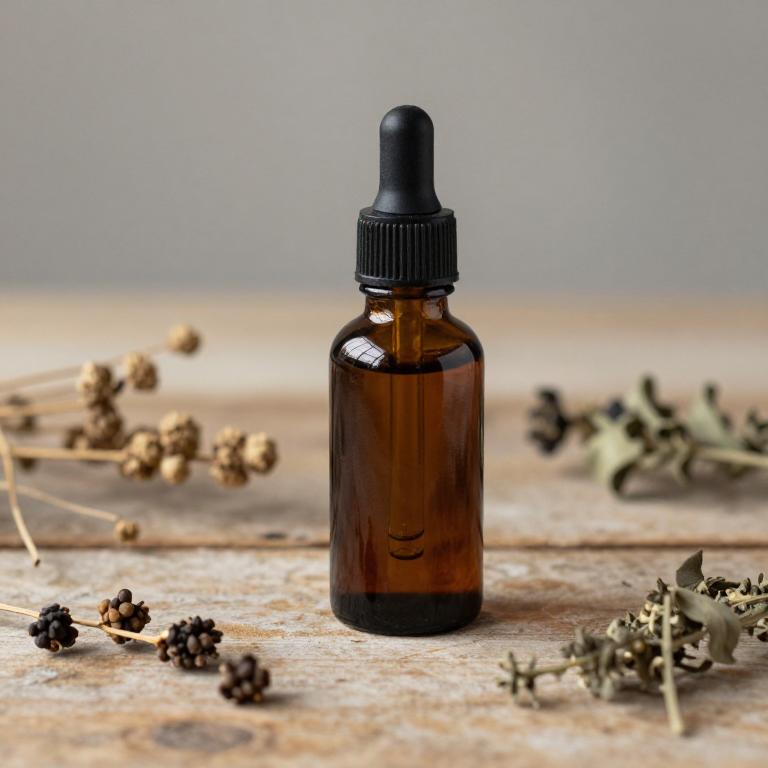
Piper methysticum, commonly known as kava, has been traditionally used for its calming effects and is now being explored as a natural remedy for anxiety.
Herbal tinctures made from the roots of the kava plant are believed to act on the central nervous system to reduce feelings of stress and promote relaxation. These tinctures are often taken orally and may contain various compounds such as kavalactones, which are thought to contribute to their anxiolytic properties. While some studies suggest that kava tinctures may be effective in alleviating mild to moderate anxiety, they should be used with caution due to potential side effects and interactions with other medications.
As with any herbal supplement, it is advisable to consult a healthcare professional before using kava tinctures for anxiety management.
10. Oat (Avena sativa)
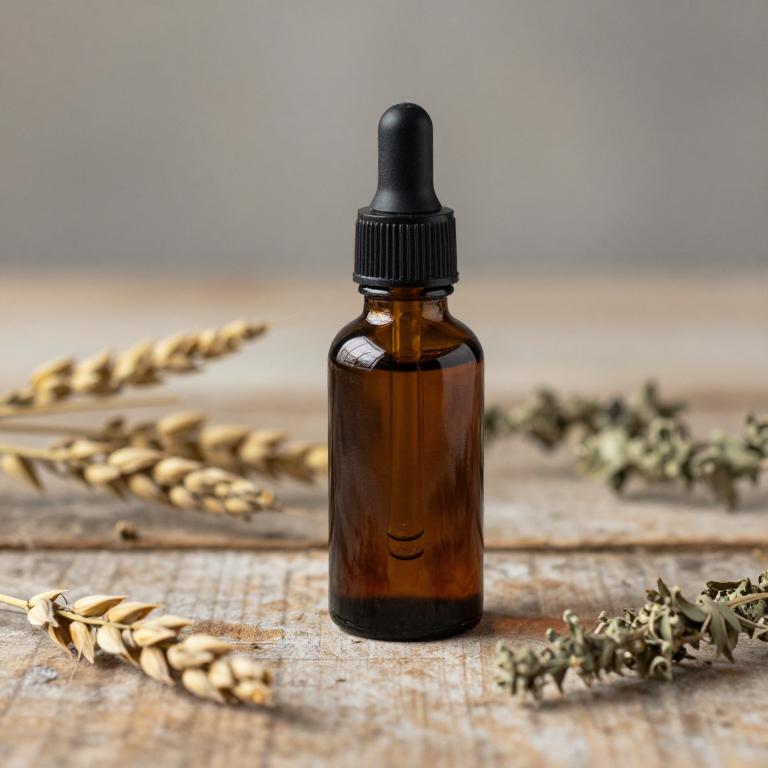
Avena sativa, commonly known as oat straw, is a traditional herbal remedy used for its calming effects, particularly in the management of anxiety.
When prepared as a tincture, Avena sativa is typically made by soaking the dried herb in alcohol to extract its active compounds, which are believed to support nervous system health. This tincture is often taken in small doses to promote relaxation and reduce feelings of stress and restlessness. It is considered a mild and natural alternative to pharmaceutical anxiety treatments, though it should not replace professional medical advice.
Many users report a sense of calm and improved mood after regular use, making it a popular choice in herbal medicine for emotional well-being.